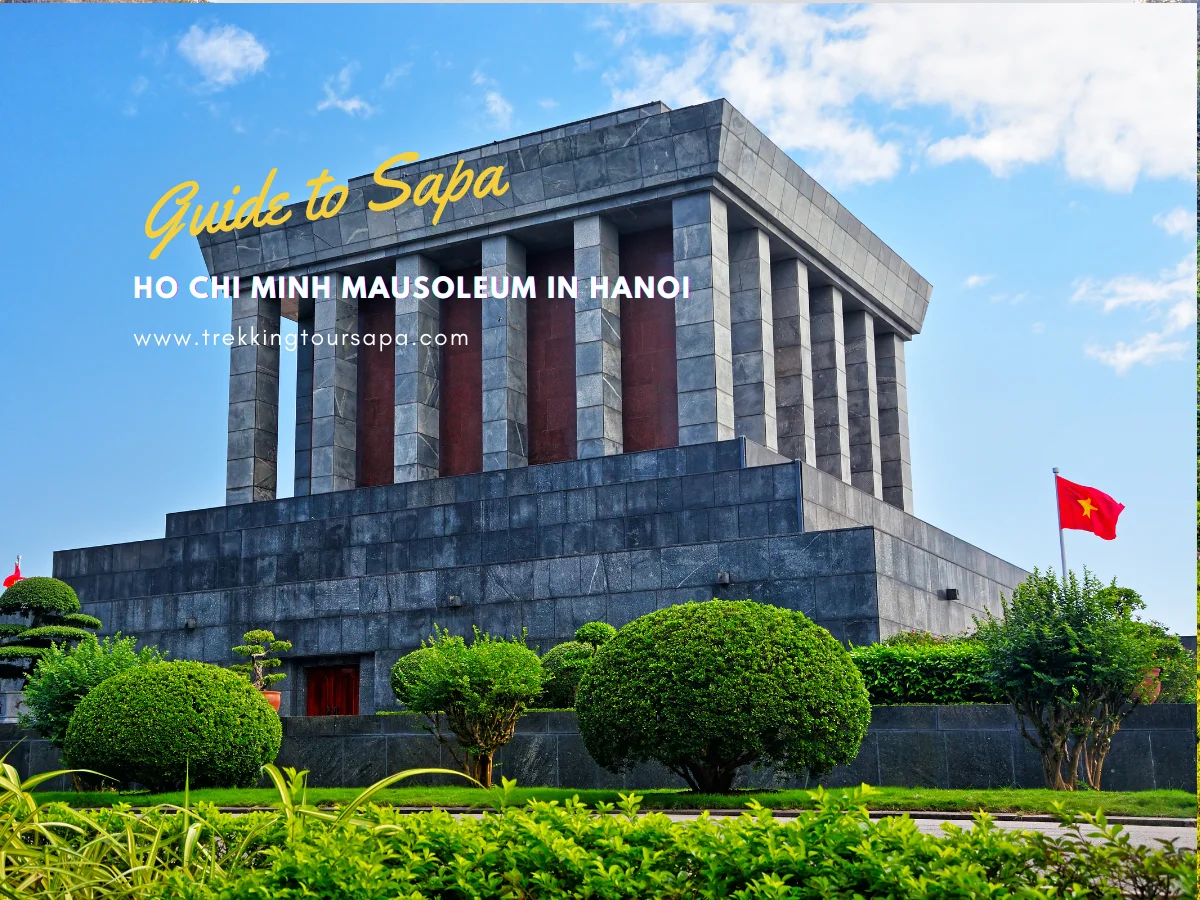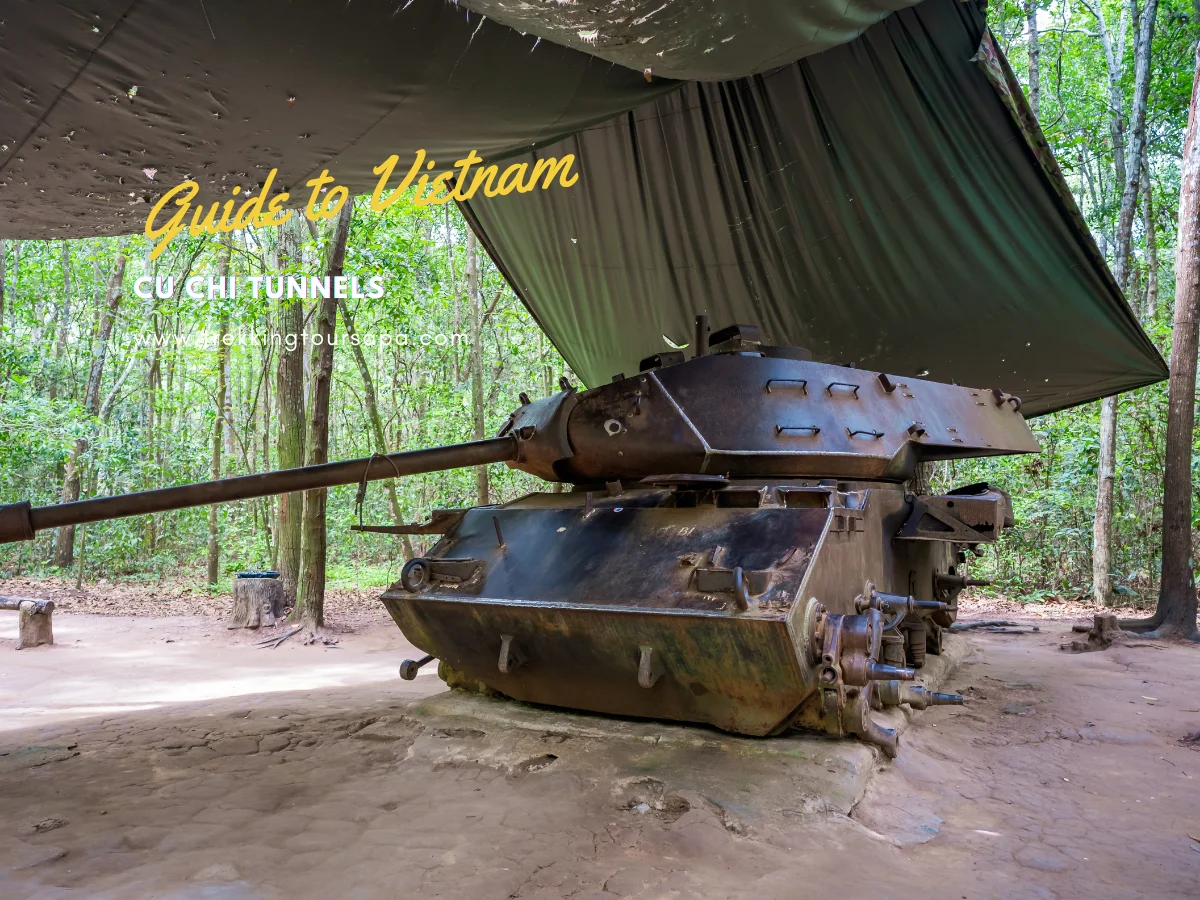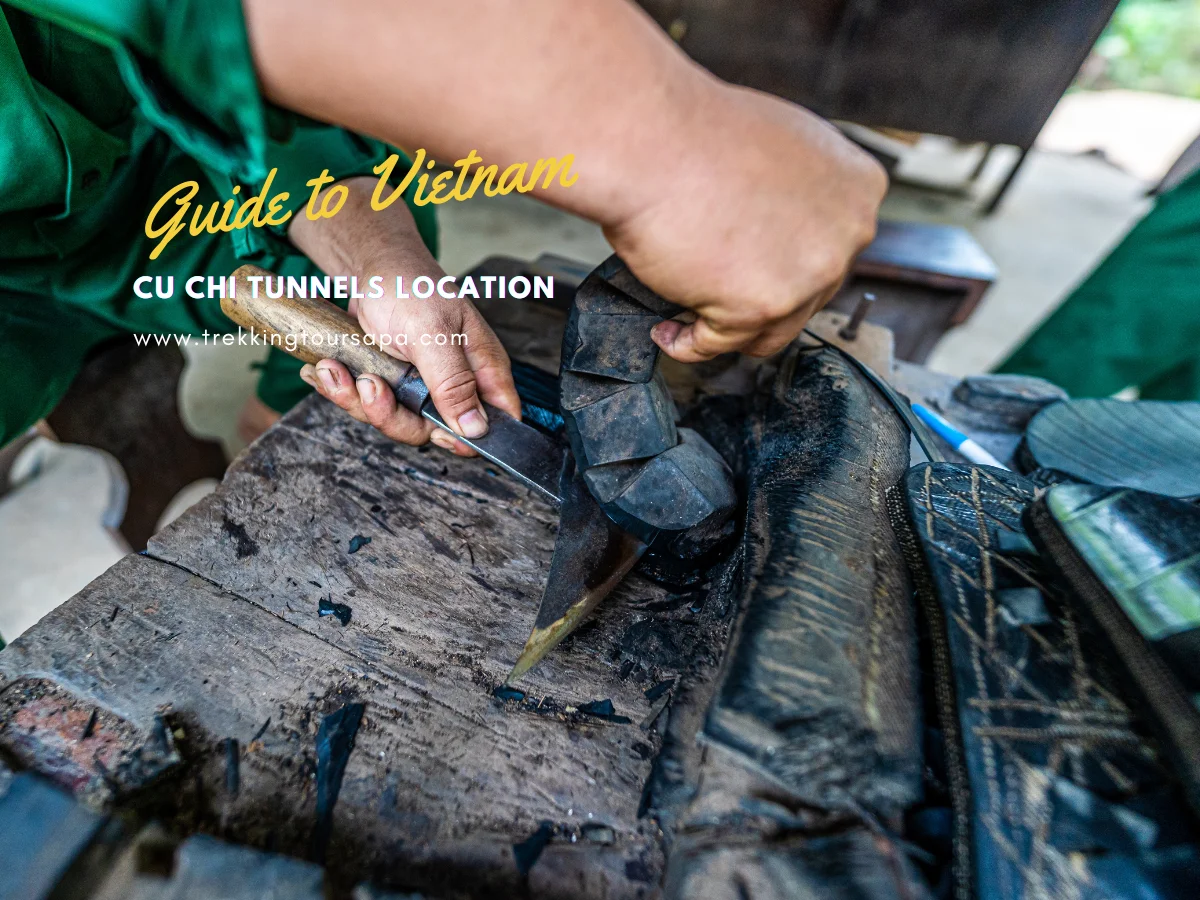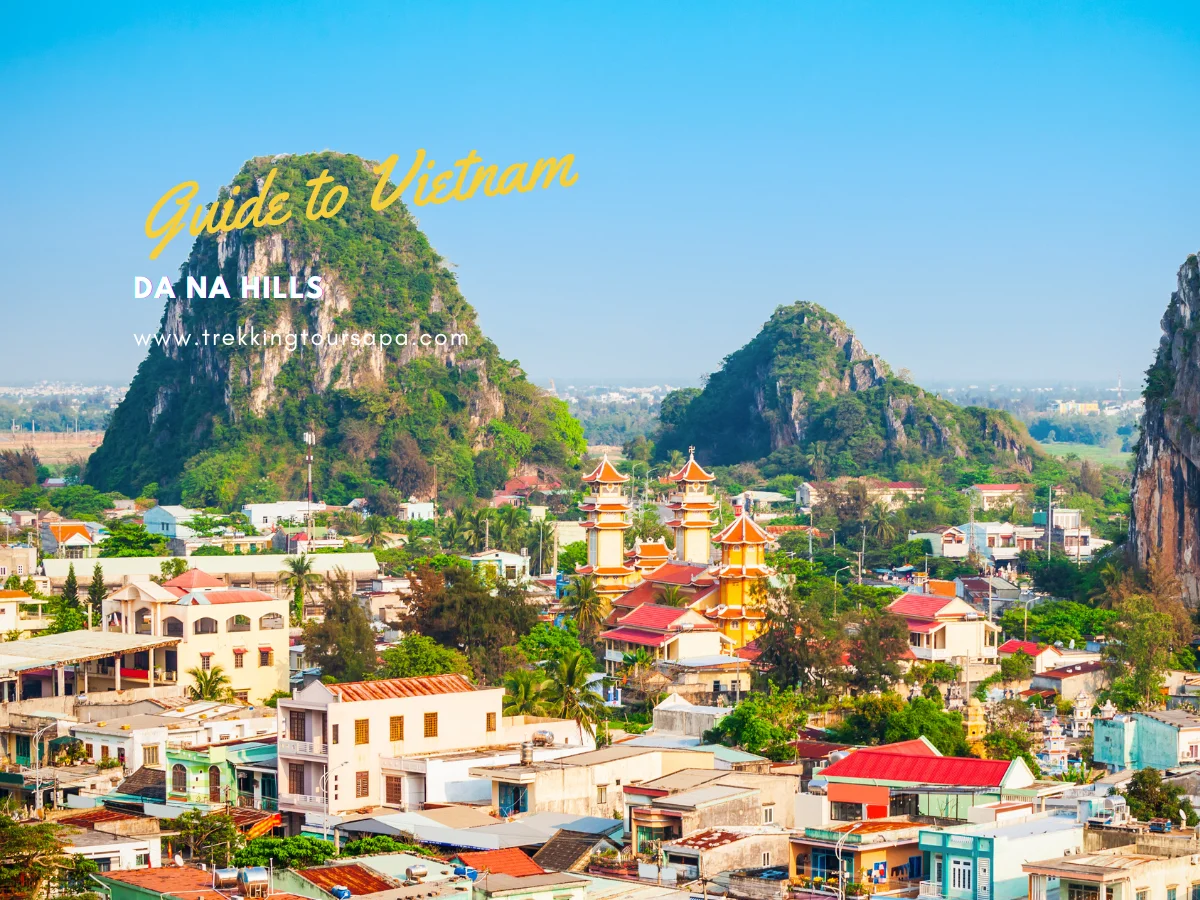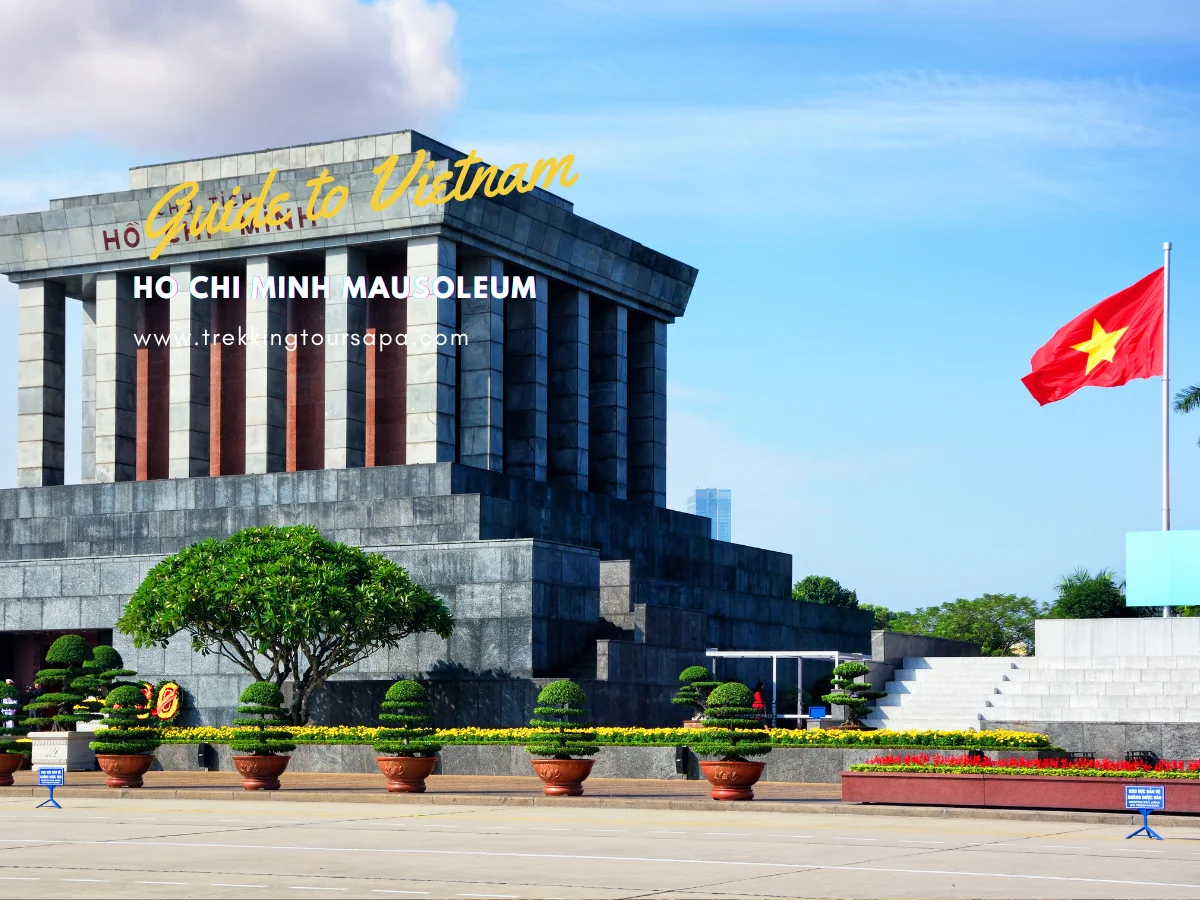The Ho Chi Minh Mausoleum in Hanoi is a key historic site. It honors the Vietnamese leader, Ho Chi Minh. Located in Ba Dinh Square, it’s more than a resting place. It’s a symbol of Vietnam’s struggle for freedom.
Every year, people from all over visit to pay their respects. They see the cultural importance of this site. The mausoleum is free to enter, offering a glimpse into Vietnam’s history.
Key Takeaways
- The mausoleum is closed on Mondays and Fridays, open five days a week.
- Visitors can witness the changing of the guard ceremony, a solemn tribute to Ho Chi Minh.
- The One Pillar Pagoda, a nearby historic Buddhist temple, enriches the cultural experience.
- Entry to the mausoleum is free, making it a cost-effective destination.
- Planning your visit can help avoid long wait times, especially on weekends.
- Ho Chi Minh’s Stilt House offers valuable insights into his life and leadership.
- Positive visitor feedback highlights excellent transport services and exceptional tour guides.
Table of Contents
ToggleThe Historical Significance of Ho Chi Minh Mausoleum
The Ho Chi Minh Mausoleum is a key symbol of Vietnamese history and pride. It honors Ho Chi Minh, a leader who fought for Vietnam’s freedom. The mausoleum holds his embalmed body, showing the nation’s fight against colonial rule.
A Tribute to Vietnam’s Revolutionary Leader
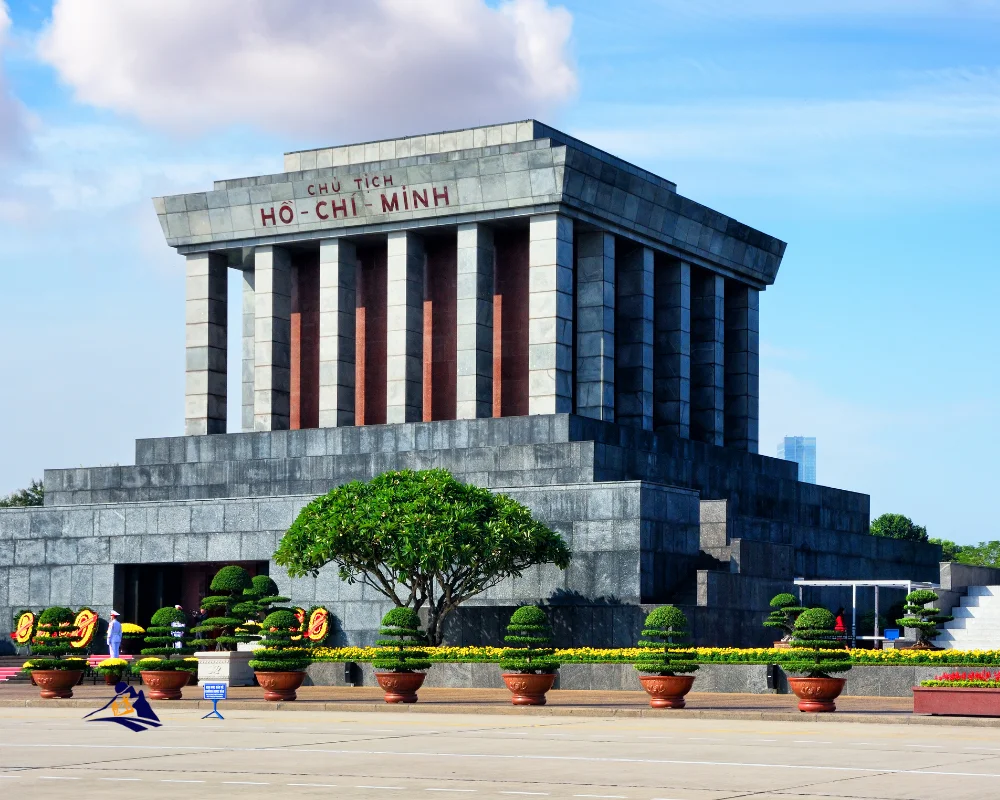
Visitors find a solemn yet inspiring place here. Ho Chi Minh’s leadership was crucial in the fight against colonial powers. His dedication to freedom is deeply felt by the Vietnamese people.
The mausoleum’s design and peaceful setting invite visitors to honor his contributions.
Connection to Vietnamese Independence
The mausoleum’s importance goes beyond its structure. Ba Dinh Square, in front of it, is where Vietnam declared its independence in 1945. This spot reminds us of Vietnam’s journey to self-rule.
The mausoleum honors Ho Chi Minh and symbolizes Vietnam’s fight for freedom.
| Feature | Details |
|---|---|
| Land Area | 14 hectares |
| Height | 21.6 meters |
| Earthquake Resistance | Magnitude 7 |
| Famous Event Location | Declaration of Vietnamese Independence |
| Entry Fee | Free |
| Daily Visitors | Thousands |
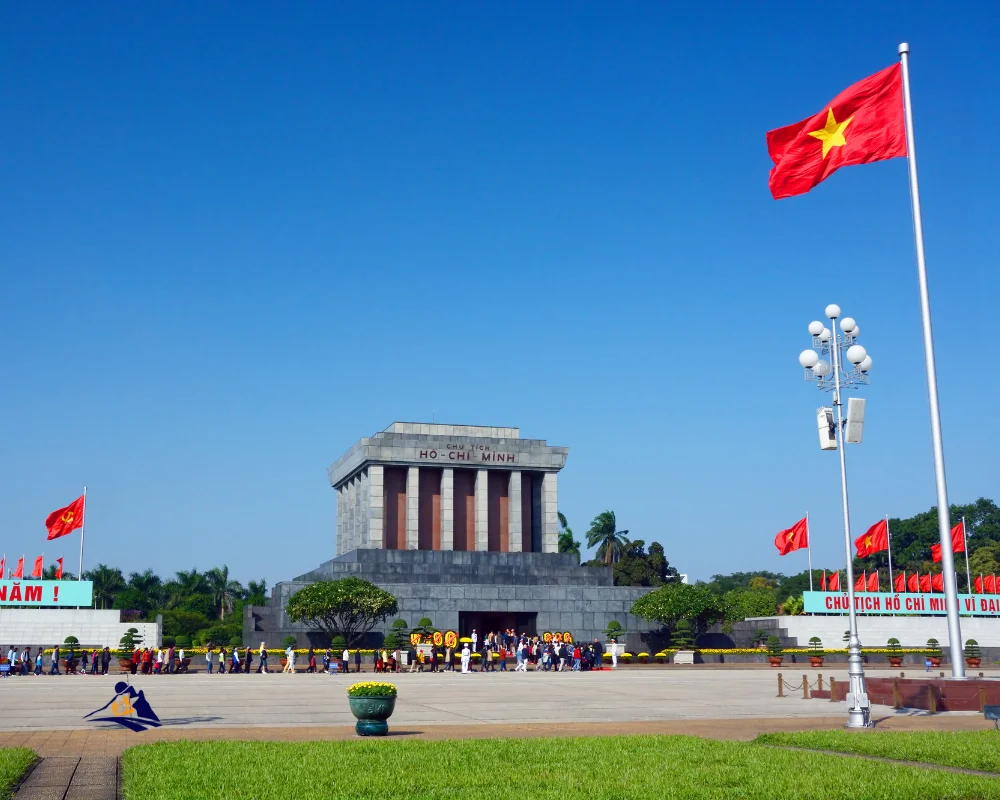
Location and Accessibility of the Mausoleum
The Ho Chi Minh Mausoleum is in the heart of Ba Dinh Square. It’s a key spot for those visiting Hanoi. Its location makes it easy to get to and from, adding to its appeal.
Situated in Ba Dinh Square
Ba Dinh Square is more than just a historical site. It’s also a center for political events and ceremonies. The mausoleum is a symbol of national pride, surrounded by beautiful gardens and architecture.
Its coordinates are 21°2′12″N 105°50′5″E. This makes it easy to find on a map.
Directions from Popular Landmarks
Getting to the Ho Chi Minh Mausoleum is easy. You can use different ways to get there:
- From the Old Quarter, it’s a 30-40 minute walk.
- Public buses like routes 9, 36, and 46 go straight there.
- Taxis are also available for a comfortable ride.
Plan your visit well. The mausoleum is open from 7:30 AM to 11:45 AM, Tuesday to Sunday. This helps avoid long waits. Remember, no photos inside and dress modestly.

| Transportation Option | Details |
|---|---|
| Walking | 30-40 minutes from the Old Quarter |
| Bus | Routes 9, 36, and 46 available |
| Taxi | Direct access from various locations |
Ho Chi Minh Mausoleum in Hanoi
The Ho Chi Minh Mausoleum is a key landmark in Hanoi. It’s known for its stunning architecture that draws many visitors. Its design is inspired by Lenin’s Mausoleum, blending Soviet and Vietnamese styles.
This building honors Ho Chi Minh’s legacy. It stands tall, showing both strength and beauty.
Architectural Design and Inspiration
The mausoleum is 21.6 meters high and 41.2 meters wide. It has three layers, starting with a 30-meter square base. The roof slopes gently, with detailed carvings that reflect Vietnam’s culture.
The design focuses on both function and symbolism. It reminds visitors of Ho Chi Minh’s important role in Vietnamese history.
Construction Timeline
Work on the mausoleum began on September 2, 1973, marking Vietnam’s National Day. It was finished quickly, opening on August 29, 1975, just two years later.
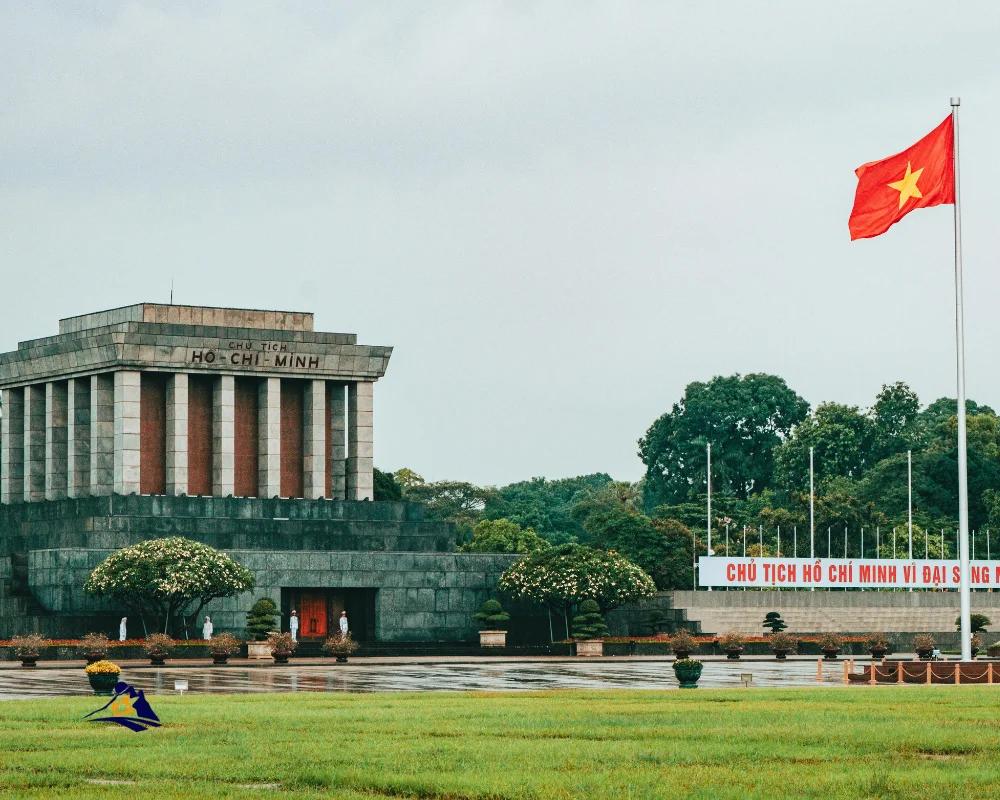
This fast completion shows the dedication to honor Ho Chi Minh. Today, the mausoleum hosts daily ceremonies, keeping its significance alive.
| Feature | Details |
|---|---|
| Height | 21.6 meters |
| Width | 41.2 meters |
| Layers | 3 |
| Construction Start Date | September 2, 1973 |
| Completion Date | May 16, 1975 |
| Inauguration Date | August 29, 1975 |
Architecture and Structure of the Mausoleum
The Ho Chi Minh Mausoleum is a symbol of Vietnam’s dedication to its leader. It mixes old and new styles, showing the country’s culture and modern touch.
Materials Used in Construction
The materials chosen for the mausoleum symbolize strength and last forever. The outside is made of grey granite, and the inside has red and pink marble. It also has 200 doors made from precious woods, showing great skill and care.
Sapa 1 Day Tours

- 1 day experience
- Moderate to challenging
- Cultural immersion & active adventure
- Rice fields, valleys & villages
- Private tours
- Vegan-friendly
Sapa 2 Day Tours

- 2 days 1 night experience
- Moderate to challenging
- Cultural immersion & active adventure
- Mountains, valleys, rice fields and villages
- Private tours
- Vegan-friendly
Sapa 3 Day Tours
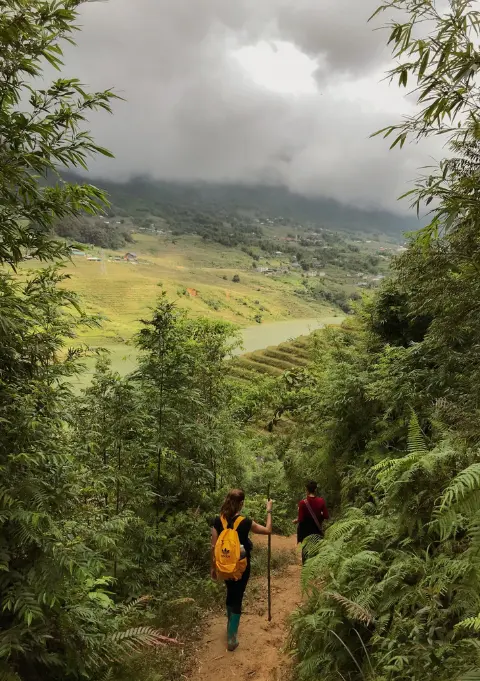
- 3 days 2 night experience
- Moderate to challenging
- Cultural immersion & active adventure
- Mountains, valley, rice fields & villages
- Private tours
- Vegan-friendly
Sapa 4 Day Tours

- 4 days 3 night experience
- Moderate to challenging
- Cultural immersion & active adventure
- Mountains, valleys, rice fields & villages
- Private tours – Less Touristic
- Vegan-friendly
Architectural Style Influences
The mausoleum’s design shows many influences. It uses socialist realism, fitting with Ho Chi Minh’s history. At the same time, it honors Vietnamese design, making it a national treasure and a source of pride.
Preservation of Ho Chi Minh’s Embalmed Body
The preservation of Ho Chi Minh’s body is a detailed process. It aims to keep his body intact and show respect for the nation’s leader. The methods used are influenced by Soviet practices, started after his death in 1969. Keeping the right temperature and humidity in the mausoleum is key for preservation.
Methods and Science Behind Preservation
Advanced techniques are used to keep Ho Chi Minh’s body safe. These include:
- Controlled temperature and humidity in the mausoleum.
- Regular checks to stop decay.
- Special chemicals to stop bacteria growth.
The body is in a glass case for visitors to see. This case protects the body from damage and shows respect for the leader.

Security Measures in Place
Security around the mausoleum is crucial. A military guard watches over the site. This creates a sense of respect for visitors.
Visitors are asked to follow strict rules. This helps keep the atmosphere solemn and respectful.
Visiting the Ho Chi Minh Mausoleum
Planning a visit to the Ho Chi Minh Mausoleum is a rewarding experience. Knowing the visiting hours and entrance policies is key for a smooth visit. This iconic site lets you honor Vietnam’s beloved leader and dive into the nation’s history.
Opening Hours and Best Time to Visit
The best time to visit is in the mornings when it’s open. The hours vary with the season:
- Summer: 7:30 AM to 10:30 AM
- Winter: 8:00 AM to 11:00 AM
The mausoleum is closed on Mondays and Fridays. So, plan your visit to avoid missing out.
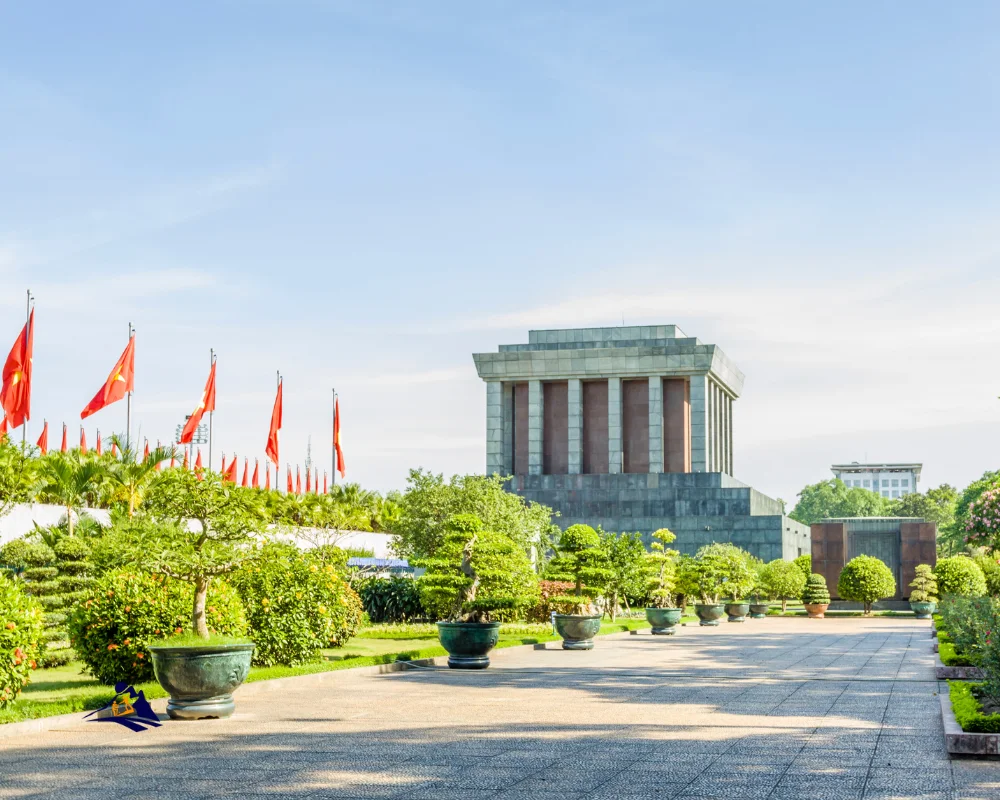
Entrance Policies and Regulations
Visitors must follow strict entrance policies to respect the site. Here are the rules:
- Dress modestly and respectfully.
- No photography is allowed inside the mausoleum.
- Maintain silence while in the premises.
By following these rules, you can have a meaningful visit. It ensures everyone can honor the leader with dignity. Being aware of these guidelines will enhance your experience at the best time to visit mausoleum.
Cultural and Historical Exhibits Near the Mausoleum
The area around the Ho Chi Minh Mausoleum is filled with cultural exhibits. These show Vietnam’s rich history and beautiful architecture. The One Pillar Pagoda is a key site, known for its Buddhist design and peaceful vibe. It dates back to 1049 and looks like it’s floating on a lotus pond.
One Pillar Pagoda Overview
The One Pillar Pagoda is a symbol of Vietnamese creativity and faith. Built in 1049, it has a unique hexagonal wooden design. It’s supported by a single stone pillar, offering a calm escape from the city.

Insights on the Ho Chi Minh Museum
The Ho Chi Minh Museum is right next to the mausoleum. It offers a deeper look into Vietnam’s history. You’ll see exhibits on Ho Chi Minh’s life and his fight for independence. It’s a great place to learn about his impact on Vietnam. For more information, check out this page.
Visiting the One Pillar Pagoda and the Ho Chi Minh Museum is a must. They offer a chance to dive into Vietnam’s stories and traditions. You’ll feel a deeper connection to the country’s identity.
Must-See Features of the Mausoleum Complex
Visiting the Ho Chi Minh Mausoleum reveals many important features. The daily flag-raising ceremony is a highlight. It’s a lively start to your day.
Daily Flag-Raising Ceremonies
The flag-raising ceremony happens every morning. In summer, it’s at 6:00 AM, and in winter, it’s at 6:30 AM. It’s a chance to feel national pride and see the guards’ discipline.
This ceremony honors Ho Chi Minh’s lasting impact on Vietnam.
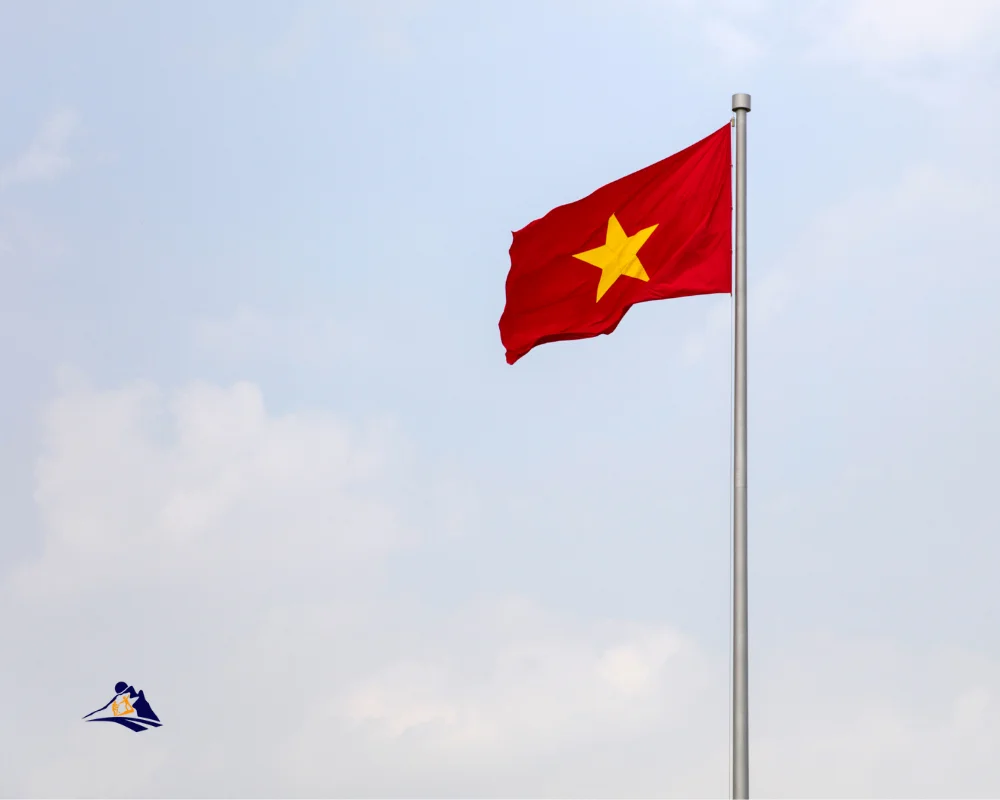
The Surrounding Gardens and Landscaping
The gardens of the Ho Chi Minh Mausoleum are also a must-see. They feature nearly 250 species of plants and flowers. These are carefully arranged to create a calm and thoughtful space.
Walking through these gardens is a peaceful experience. It’s also a way to see Vietnam’s beautiful plants up close.
| Feature | Description |
|---|---|
| Flag-Raising Ceremony | Occurs daily at 6:00 AM (summer) and 6:30 AM (winter); a display of national pride. |
| Gardens of Ho Chi Minh Mausoleum | Nearly 250 species of plants and flowers create a tranquil atmosphere. |
The Role of Ho Chi Minh in Vietnamese History
Looking into Ho Chi Minh history shows us the man and his big impact on Vietnam. Born on May 19, 1890, he is a key figure in Vietnamese history. His life and work show his strong dedication and revolutionary spirit.
Life and Achievements of Ho Chi Minh
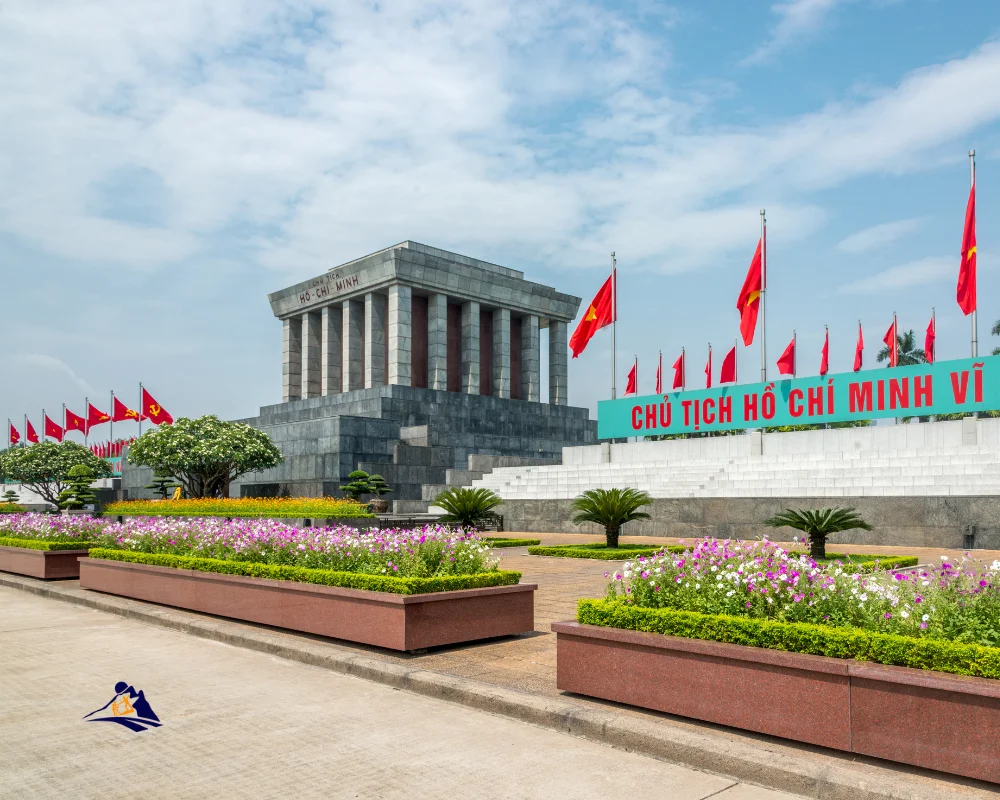
Ho Chi Minh started his journey in a time of colonial rule. He co-founded the Indochinese Communist Party and was key in Vietnam’s fight for freedom. Under him, big steps were taken in education, land reform, and healthcare.
These achievements still shape Vietnam today, showing his care for the people.
Legacy of Ho Chi Minh’s Policies
The legacy of Ho Chi Minh lives on in Vietnam’s social and economic policies. His dream of a united and free Vietnam has inspired many. The mausoleum shows not just a leader but also Vietnam’s history, present, and future.
| Aspect | Details |
|---|---|
| Birth Date | May 19, 1890 |
| Key Role | Founder of the Indochinese Communist Party |
| Chairman | Workers’ Party of Vietnam from 1951 to 1969 |
| Independent Vietnam | Led the nation to independence |
| Mausoleum Visitors | Over 15,000 weekly |
Sapa 1 Day Tours

- 1 day experience
- Moderate to challenging
- Cultural immersion & active adventure
- Rice fields, valleys & villages
- Private tours
- Vegan-friendly
Sapa 2 Day Tours

- 2 days 1 night experience
- Moderate to challenging
- Cultural immersion & active adventure
- Mountains, valleys, rice fields and villages
- Private tours
- Vegan-friendly
Sapa 3 Day Tours

- 3 days 2 night experience
- Moderate to challenging
- Cultural immersion & active adventure
- Mountains, valley, rice fields & villages
- Private tours
- Vegan-friendly
Sapa 4 Day Tours

- 4 days 3 night experience
- Moderate to challenging
- Cultural immersion & active adventure
- Mountains, valleys, rice fields & villages
- Private tours – Less Touristic
- Vegan-friendly
Visitor Experience and Tips
Your visit to the Ho Chi Minh Mausoleum will be unforgettable. It’s a place filled with history. As you enter, you’ll feel a calm that makes you think about Ho Chi Minh’s life and legacy.
There’s a clear path to follow, and tickets are sold for a small price. The mausoleum is open from 7:30 AM to 11:45 AM, Tuesday to Sunday. In winter, hours change to fit the season.
What to Expect During Your Visit
At the Ho Chi Minh Mausoleum, you’ll see Ho Chi Minh’s body in a glass case. The site is organized to keep it respectful. You’ll find guides ready to share interesting facts about the complex and its gardens.
Respectful Behavior and Dress Code
It’s important to be respectful at the mausoleum. You should be quiet and not take photos inside. Wear clothes that cover you well.
Children under three can’t go inside. Following these tips will make your visit better and show respect for Ho Chi Minh’s memory.
Impact of the Mausoleum on Vietnamese Culture
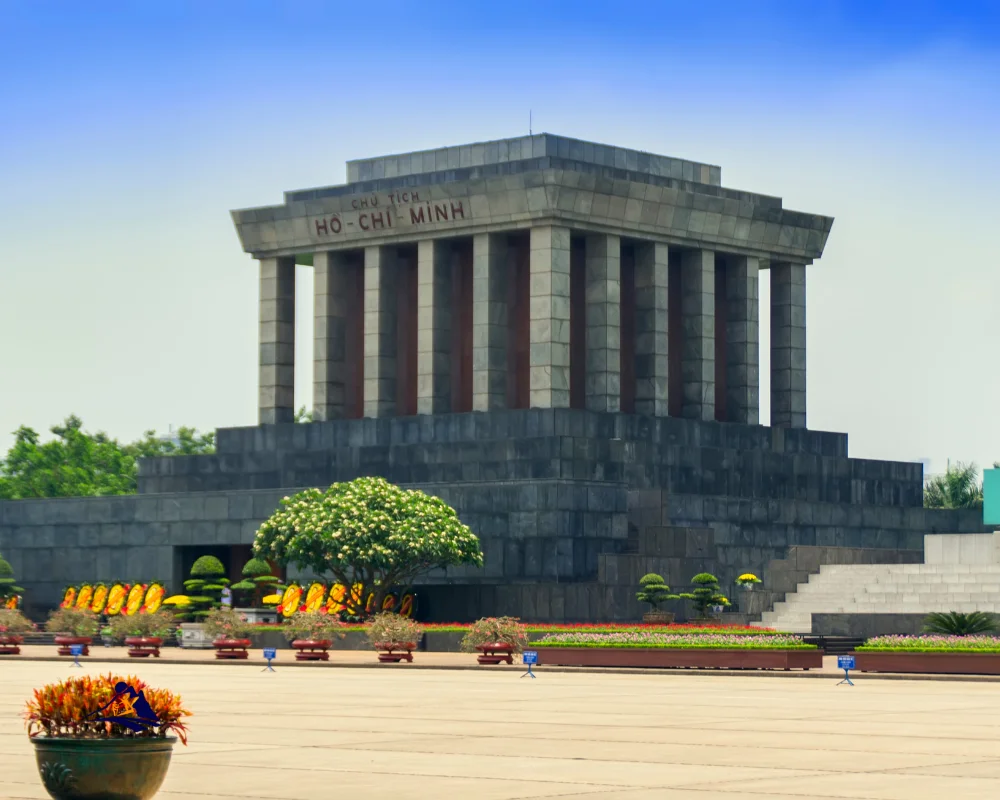
The Ho Chi Minh Mausoleum is a key cultural symbol for the Vietnamese. It shows their strong national pride. It honors Ho Chi Minh, a key figure in Vietnam’s history, who fought for independence.
The mausoleum is more than a resting place. It stands for freedom and unity, core values of Vietnam.
A Symbol of National Pride
This landmark is a tribute to Ho Chi Minh’s lasting legacy. It boosts national pride among Vietnamese, reminding them of their past struggles and victories. Millions visit each year to honor a leader whose vision still guides the nation.
Influence on Future Generations
Ho Chi Minh’s story and impact are taught in Vietnamese schools. The mausoleum teaches future generations about their heritage and patriotism. His legacy lives on through education, community talks, and public discussions.
Events and Ceremonies Held at the Mausoleum
The Ho Chi Minh Mausoleum is a key place for many events and ceremonies. These happen a lot during national holidays in Vietnam. It’s a place where people come together to remember Vietnam’s past and honor its leader.
National Holidays and Special Commemorations
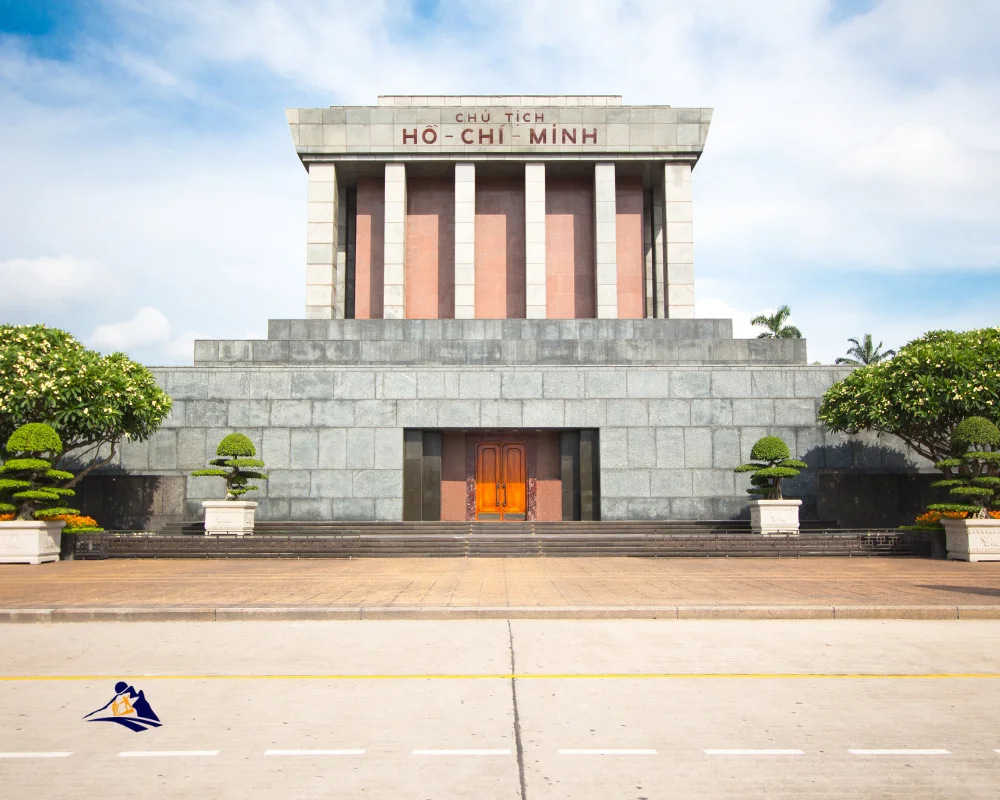
Big events happen here on days like Ho Chi Minh’s birthday and Vietnam’s National Day. These days, lots of people come to show their respect for their leader. You can see special ceremonies, like the flag-raising at Ba Dinh Square in the morning.
When Vietnam celebrates national holidays, there’s more than just the mausoleum. Hanoi hosts cultural and artistic events. For example, in 2024, nearly 20 events are planned for Independence Day. These events highlight Vietnam’s rich heritage and traditions.
These gatherings are more than just events. They’re a way to remember the sacrifices made for freedom. By joining these ceremonies, you’re part of a shared history and the nation’s ongoing journey.
Exploring Other Attractions in the Vicinity
When you visit the Ho Chi Minh Mausoleum, don’t miss out on other nearby sights. These places offer a deeper look into Vietnam’s history and culture. The area is filled with sites that show different parts of Vietnamese heritage.
The Presidential Palace Experience

The Presidential Palace is a must-see, with its stunning French colonial architecture. It’s just a short walk from the mausoleum. The palace has beautiful gardens and reminds us of Vietnam’s colonial past.
Visitors can enjoy a peaceful walk through the gardens. It’s a calm escape from the city’s busy streets.
House on Stilts – A Glimpse into Ho Chi Minh’s Life
The House on Stilts gives us a peek into Ho Chi Minh’s simple life. This house, where he lived, is a contrast to the grand Presidential Palace. It shows his modesty and commitment to the Vietnamese people.
Exploring these sites helps us appreciate Ho Chi Minh’s lasting impact. It’s a chance to see his daily life and values up close.
These attractions make your visit even more special. They show the rich history that shapes Vietnam. Each place adds its own piece to the story of the nation’s past.
The Mausoleum’s Role in Vietnamese Tourism
The Ho Chi Minh Mausoleum is a key spot for tourism in Vietnam. Every year, millions visit to honor a national hero and learn about history. It’s not just about culture; it also boosts the local economy.
Attracting Local and International Visitors

In Hanoi, the mausoleum is a top spot for both locals and tourists. It’s free for Vietnamese and a small fee for foreigners. Visitors can witness ceremonies like the daily flag-raising.
This brings in many visitors, helping the tourism industry grow. It promotes cultural exchange and understanding.
Economic Impact of Tourism on the Region
The mausoleum’s tourism has a big economic effect. It helps local businesses and creates jobs in hospitality. It also encourages people to see other places like the One Pillar Pagoda and the Presidential Palace.
Planning Your Trip to the Ho Chi Minh Mausoleum
Planning your trip to the Ho Chi Minh Mausoleum is key for a great visit. Knowing how to get around Hanoi makes your trip better. It lets you enjoy the city’s culture and history more.
Transportation Options in Hanoi
Hanoi has many ways to get to the mausoleum. Here’s a quick guide:
- Taxis and ride-sharing services like Grab provide convenient door-to-door service.
- Buses are an economical option, with routes such as 09, 18, 22, 23, 33, 45, and 50 connecting to the mausoleum.
- Motorbikes are popular among locals, allowing you to navigate the city’s busy streets easily.
- For those keen on driving, parking lots near the Ho Chi Minh Museum are available.

This variety of transportation in Hanoi makes getting to the mausoleum easy. You can choose public transit or drive yourself.
Accommodation Arrangements Nearby
Choosing the right place to stay near the mausoleum makes your visit better. There are many options for different budgets and tastes:
| Accommodation Type | Price Range (USD) | Recommended Examples |
|---|---|---|
| Luxury Hotels | $100 – $300 | Sofitel Legend Metropole, JW Marriott Hotel |
| Mid-Range Hotels | $50 – $100 | Serenity Villa Hotel, La Belle Vie Hotel |
| Budget Hostels | $10 – $50 | Hanoi Backpacker Hostel, Old Quarter View Hostel |
Picking the right accommodation near mausoleum makes your trip better. It lets you easily visit the mausoleum and other places. For more tips, see this guide on trip planning in Hanoi for a memorable experience.
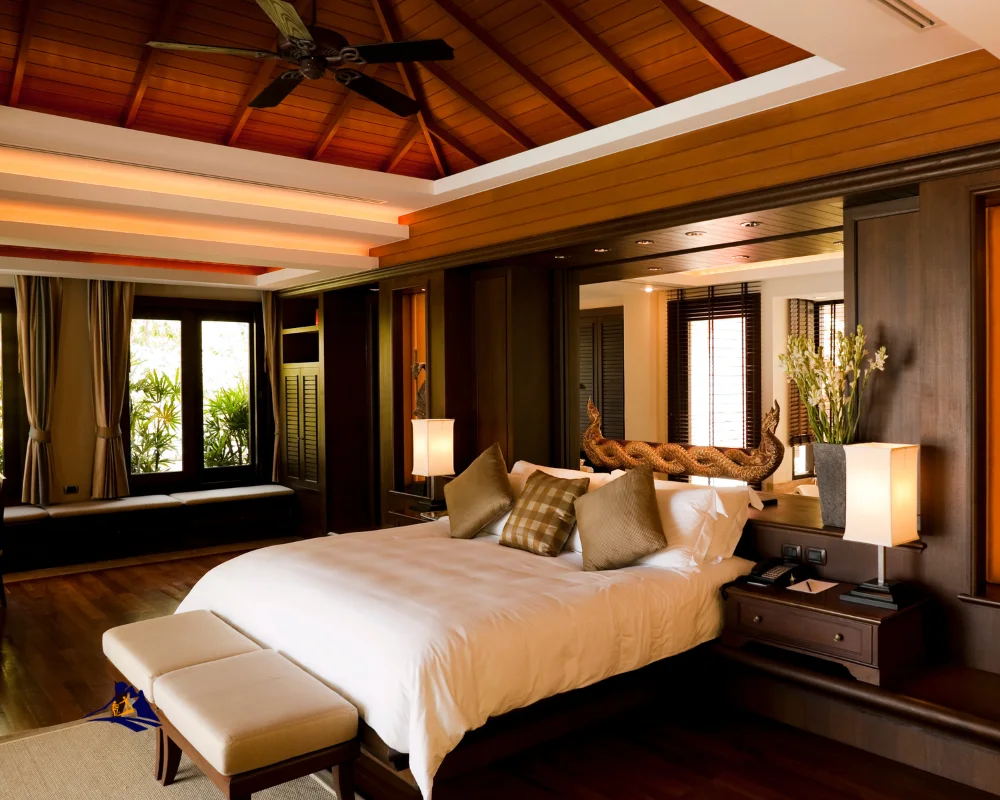
Conclusion
Visiting the Ho Chi Minh Mausoleum is a meaningful experience. It lets you honor a key figure in Vietnam’s history. This visit helps you understand Ho Chi Minh’s role in shaping the nation.
The mausoleum is a landmark in Hanoi that shows Vietnam’s past and its journey to freedom. It’s not just a place of rest. It’s a symbol of strength that touches both locals and visitors.
Exploring this site, you’ll see the care in its design and the quiet mood kept by the guards. Follow the rules, like the dress code and no photos or phones. These rules help keep the mausoleum’s respectful atmosphere.
Seeing the mausoleum is part of experiencing Hanoi’s history. The gardens and One Pillar Pagoda nearby add to your cultural journey. These moments connect you with Vietnam’s spirit.
So, make time for the Ho Chi Minh Mausoleum in your trip. It will leave a lasting impression of Vietnam’s heart and soul.
Sapa 1 Day Tours

- 1 day experience
- Moderate to challenging
- Cultural immersion & active adventure
- Rice fields, valleys & villages
- Private tours
- Vegan-friendly
Sapa 2 Day Tours

- 2 days 1 night experience
- Moderate to challenging
- Cultural immersion & active adventure
- Mountains, valleys, rice fields and villages
- Private tours
- Vegan-friendly
Sapa 3 Day Tours

- 3 days 2 night experience
- Moderate to challenging
- Cultural immersion & active adventure
- Mountains, valley, rice fields & villages
- Private tours
- Vegan-friendly
Sapa 4 Day Tours

- 4 days 3 night experience
- Moderate to challenging
- Cultural immersion & active adventure
- Mountains, valleys, rice fields & villages
- Private tours – Less Touristic
- Vegan-friendly
